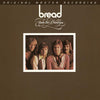







Bread - Baby I'm-A Want You (Ultra Analog, Half-speed Mastering)
ORDER LIMITED TO ONE ITEM PER CUSTOMER
David Gates - vocals, guitars, bass, Moog, violin
James Griffin - vocals, guitars, piano
Larry Knechtel - piano, bass, Hammond organ, harmonica, guitars, miscellaneous keyboards
Mike Botts - drums, percussion
Robb Royer - bass on "Mother Freedom
1 LP, gatefold jacket
Numbered edition limited to 3,000 copies
Original analog Master tape : YES
Half-speed Mastering
Gain 2™ Ultra Analog
Heavy Press : 180g
Record color : black
Speed : 33RPM
Size : 12”
Stereo
Studio
Record Press : RTI
Label : MOFI
Original Label : Elektra
Recorded in 1971 at Hollywood Sound Recorders, Los Angeles
Engineered & mixed by : Armin Steiner
Produced by David Gates
Remastered by Krieg Wunderlich
Originally released in 1972
Reissued in 2019
Tracks:
Side A :
- Mother Freedom
- Baby I'm-A Want You
- Down on My Knees
- Everything I Own
- Nobody Like You
- Diary
Side B :
- Dream Lady
- Daughter
- Games of Magic
- This Isn't What the Governmeant
- Just Like Yesterday
- I Don't Love You
Reviews :
"Baby I'm-A Want You is Bread's best album, showcasing its soft and hard sides (yes, Bread had a hard side) at their respective peaks. "Mother Freedom," with its crunchy James Griffin guitar solo, and the superb soft rocker "Baby I'm-A Want You" made a brilliant opening which the rest of the album had a hard time matching. The songs range from wistful sentimentality ("Diary") to spirited protest ("This Isn't What the Government," a poor man's "Taxman" with an anti-war slant). The high points outnumber the flat spots, and the playing is very polished (with unexpected hard rock flourishes on "Dream Lady"), but this is still a '70s period piece. Reissued in 1996." AllMusic Review by Bruce Eder
Ultra Analog™ : The GAIN 2 Ultra Analog™ Series stems from the use of the Gain 2 system, mastered at half speed from the original master tapes where possible, capturing and uncovering as before undiscovered sonic information.
Half-speed mastering. In half-speed mastering, the whole process is slowed down to half of the original speed. A typical 33 1/3 rpm record is cut at 16 2/3 rpm. The source material is also slowed down (reducing the pitch in the process) meaning the final record will still sound normal when played back. Slowing the whole process down allows more time, which means the end result sounds better and is more efficient — allowing engineering to minimize the effects of inherent limitations within the vinyl format. The result is a more accurate and more open high-frequency response in the half speed vinyl when compared with a normal speed recording.
Ratings :
AllMusic : 4,5 / 5 , Discogs : 3,87 / 5



